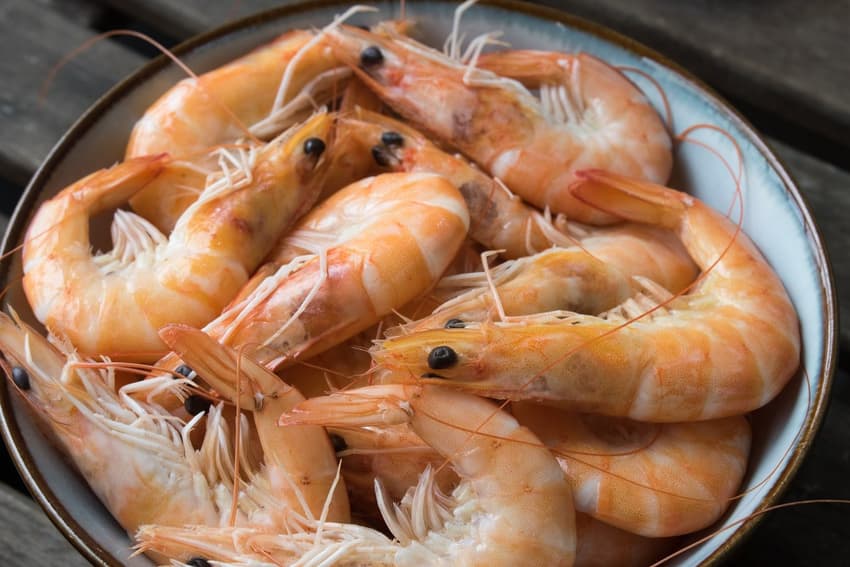Why you shouldn't suck prawn heads during an Italian Christmas feast

Juicy prawns are a central part of a traditional Christmas feast in many parts of Italy, and for many Italians, sucking on the freshly removed head is the very best part.
But you may want to think twice before trying this local custom yourself as health authorities in Spain, where the custom is even more widespread, have warned that it's not safe.
The Spanish Food & Safety Agency, (AESAN) issued an advisory warning diners not to suck the heads of such shellfish because of the health risks associated with cadmium.
Concentrated levels of cadmium (Cd) a heavy metal associated with zinc, copper and lead, are found in the dark meat of shellfish such as prawns, crab and lobster, but cannot be processed by humans and can cause problems in the liver and kidneys.
The metal accumulates in the human body over a period of between 10 and 30 years, and has been classed a category 1 carcinogen by the International Agency for Research on Cancer (IARC).
It can cause renal problems or liver damage, demineralization of bones and in the worst case, cancer.
It is also present in high levels in the edible offal of animals, such as kidneys and livers.
In prawns these organs are found in the ‘head’ part - which is considered a delicacy in Italy and Spain.
READ ALSO: Six quirky Italian Christmas traditions you should know about
While the food eaten at Christmas and New Year in Italy can vary greatly from region to region, seafood often features heavily - especially in the south and islands.
The head is pulled off and sucked on before the body is peeled and the white meat consumed.
Comments
See Also
But you may want to think twice before trying this local custom yourself as health authorities in Spain, where the custom is even more widespread, have warned that it's not safe.
The Spanish Food & Safety Agency, (AESAN) issued an advisory warning diners not to suck the heads of such shellfish because of the health risks associated with cadmium.
Concentrated levels of cadmium (Cd) a heavy metal associated with zinc, copper and lead, are found in the dark meat of shellfish such as prawns, crab and lobster, but cannot be processed by humans and can cause problems in the liver and kidneys.
The metal accumulates in the human body over a period of between 10 and 30 years, and has been classed a category 1 carcinogen by the International Agency for Research on Cancer (IARC).
It can cause renal problems or liver damage, demineralization of bones and in the worst case, cancer.
It is also present in high levels in the edible offal of animals, such as kidneys and livers.
In prawns these organs are found in the ‘head’ part - which is considered a delicacy in Italy and Spain.
READ ALSO: Six quirky Italian Christmas traditions you should know about
While the food eaten at Christmas and New Year in Italy can vary greatly from region to region, seafood often features heavily - especially in the south and islands.
The head is pulled off and sucked on before the body is peeled and the white meat consumed.
Join the conversation in our comments section below. Share your own views and experience and if you have a question or suggestion for our journalists then email us at [email protected].
Please keep comments civil, constructive and on topic – and make sure to read our terms of use before getting involved.
Please log in here to leave a comment.